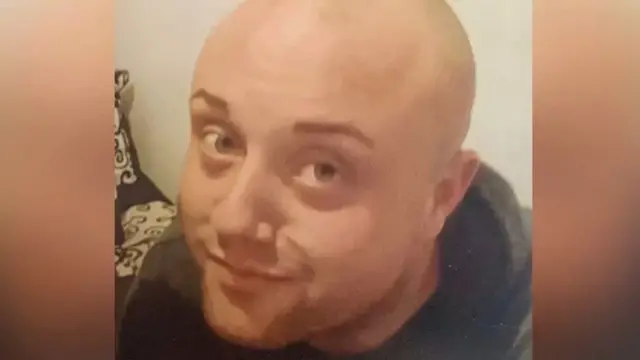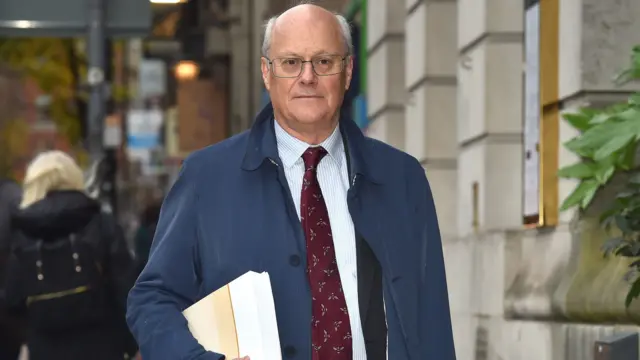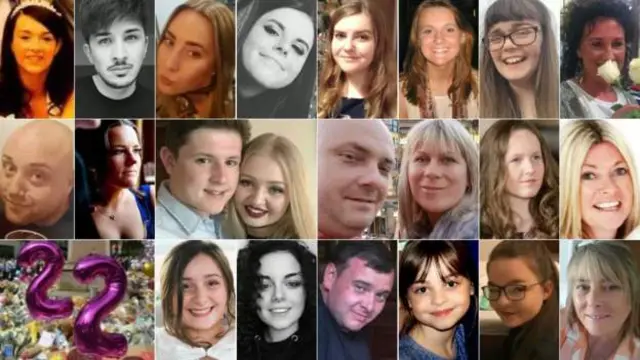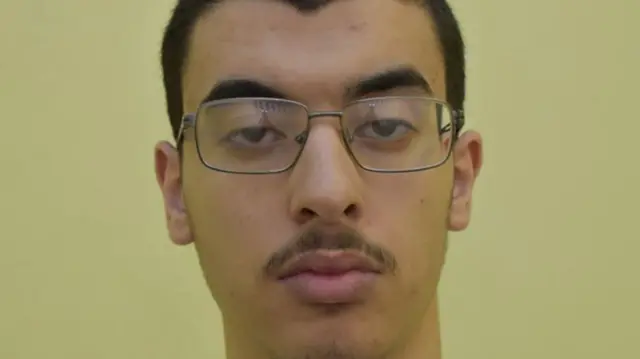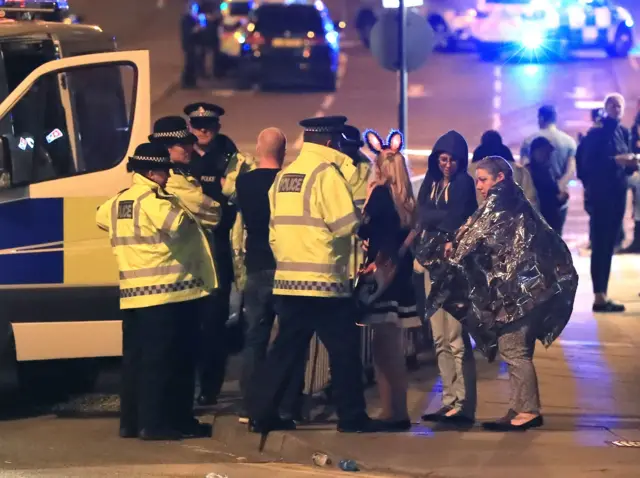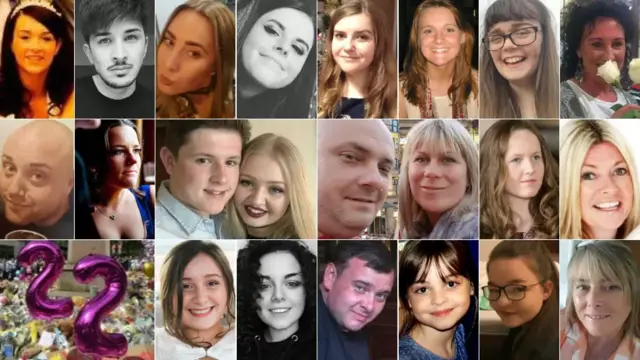Admiration for courageous people - chairmanpublished at 14:37 GMT 3 November 2022
The chairman has reminded people of the courageous efforts of people on the scene.
"Those who have listened to the evidence will not be surprised that I am highly critical of many aspects of the rescue operation," he says.
"Those criticisms must not overshadow our admiration for the courage of those who went into the city room without any hesitation to help the dying and the injured."

